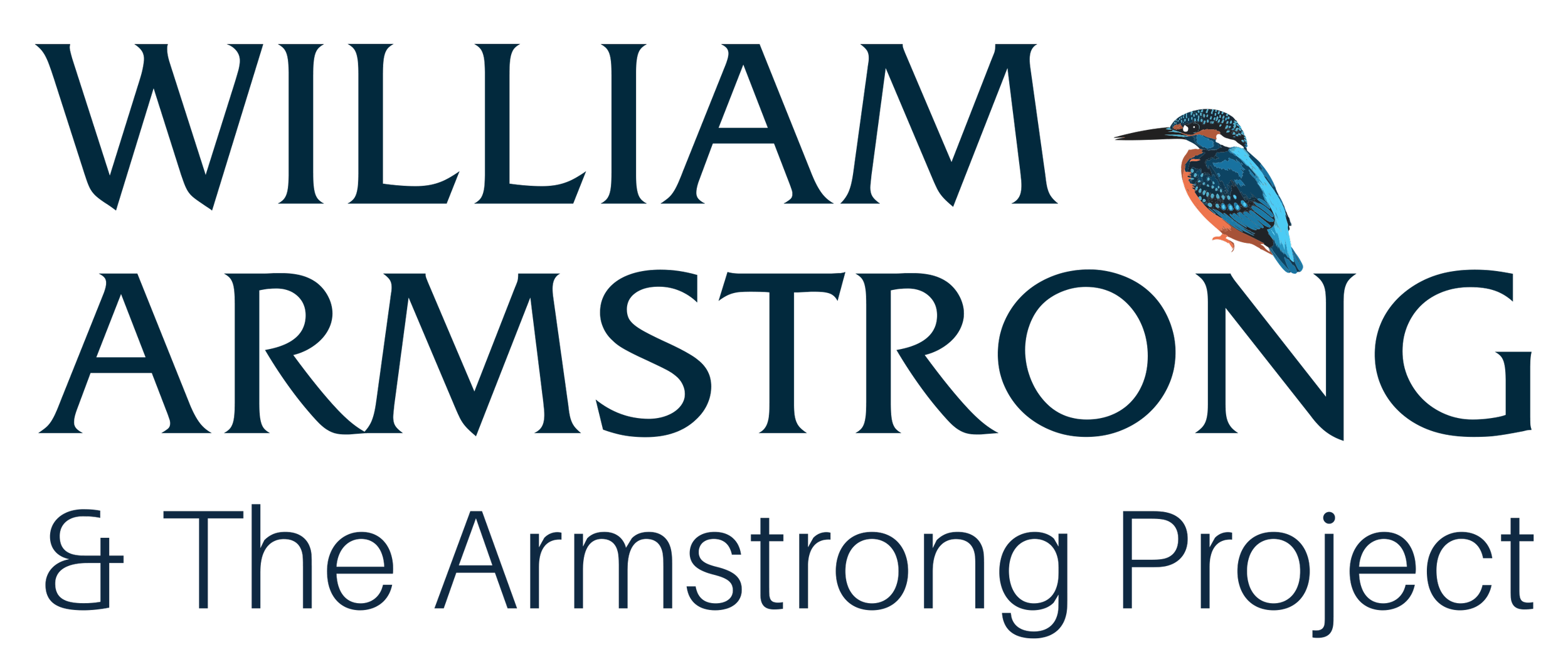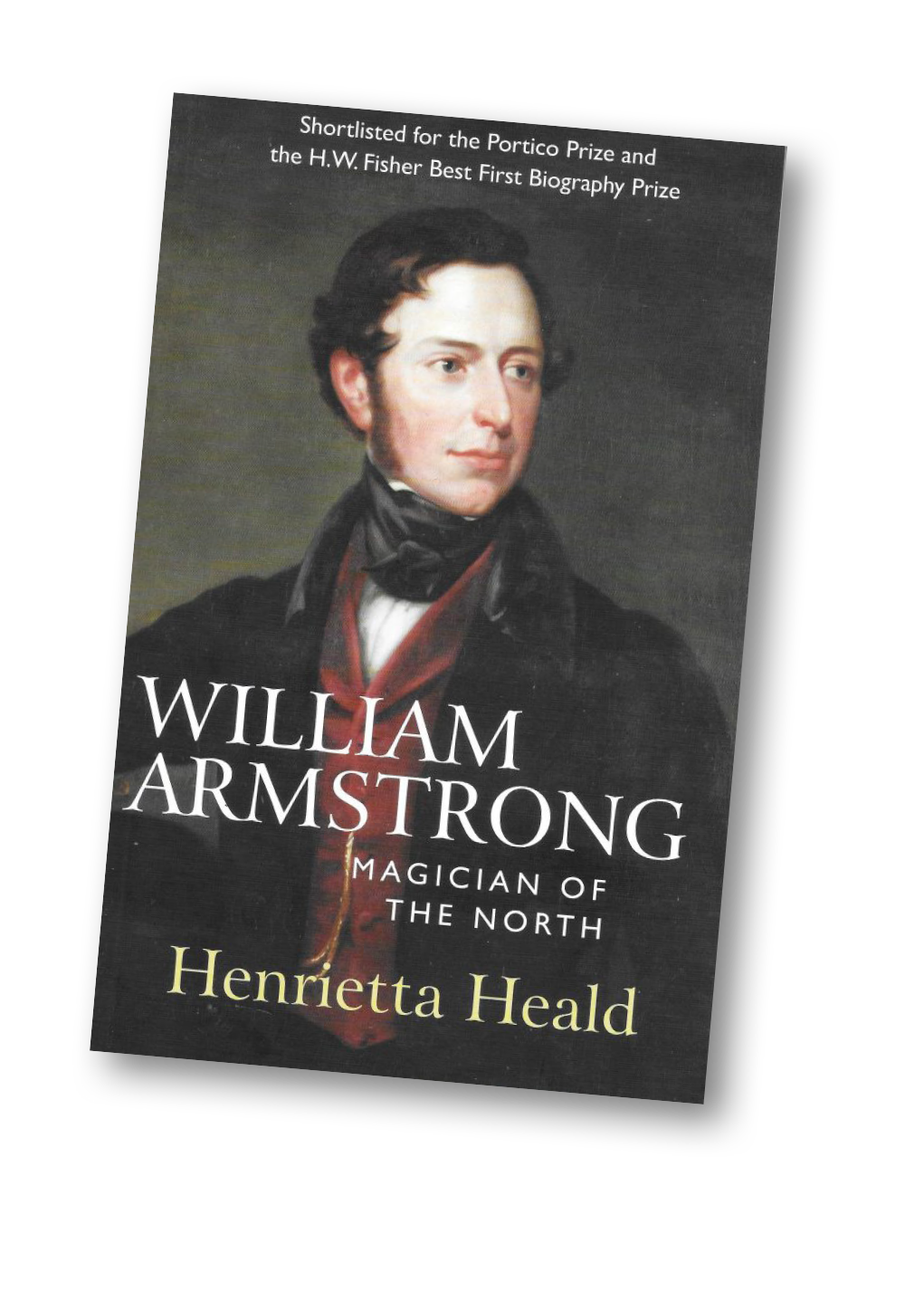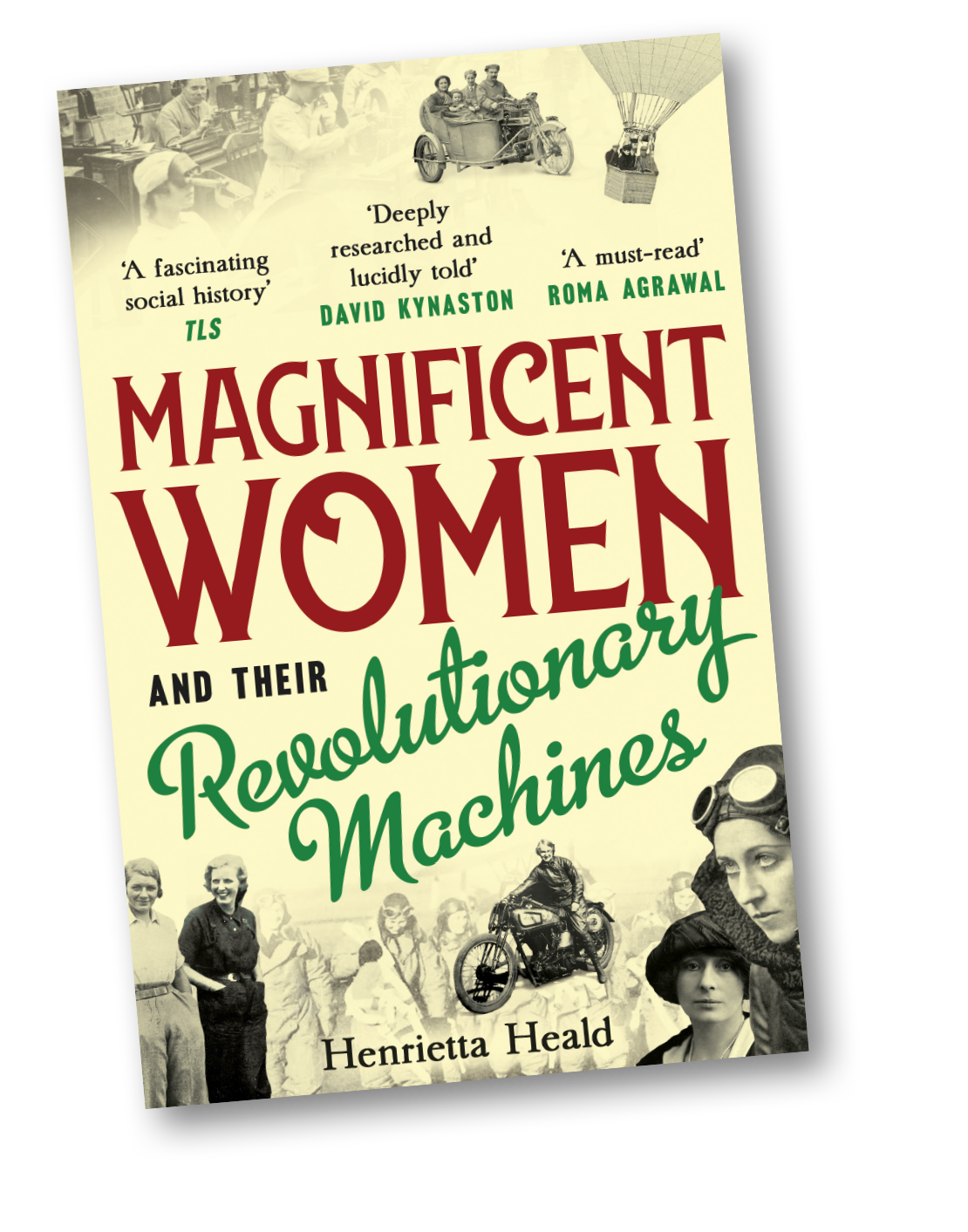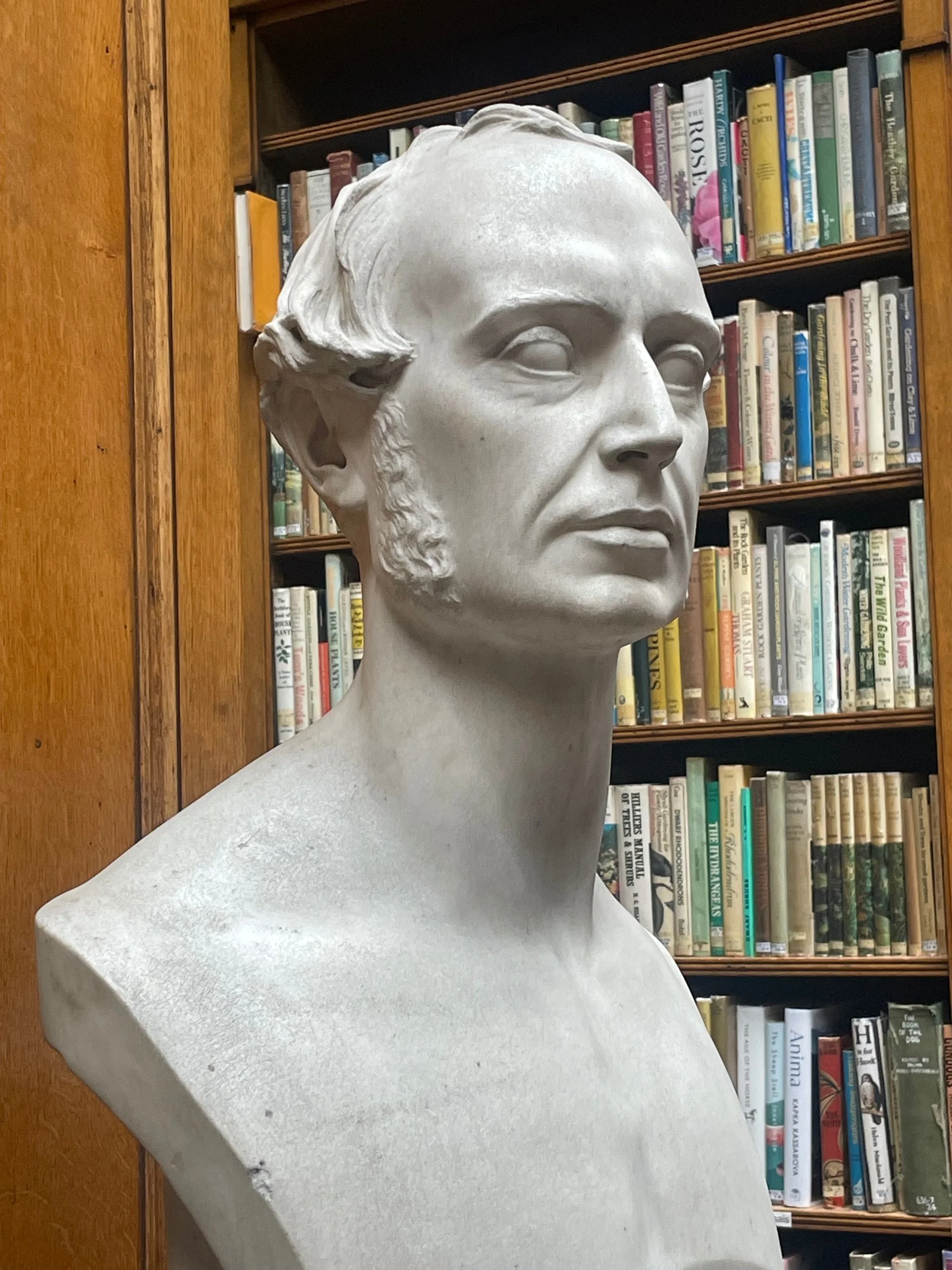About the Writer
Henrietta Heald is a writer, editor and heritage campaigner who has become a world authority on William Armstrong. (photo: Caroline Forbes)
Henrietta Heald is the author of Magician of the North (McNidder & Grace), the first full-scale biography of William Armstrong, shortlisted for the Best First Biography Prize and the Portico Prize for Non-Fiction. It has been constantly in print since first publication in 2010 and generated huge interest in the man, with Henrietta giving many talks, interviews and broadcasts to throw light on his life and work.
Henrietta’s knowledge of Armstrong, on whom she has become a world authority, sparked her interest in The Armstrong Project, an initiative to create a lasting memorial to the man in his native city that would reflect his pre-eminence in science and engineering, his love of nature and the arts, and his passion for broadening access to education as the key to a better society.
Her book Magnificent Women and Their Revolutionary Machines was published in 2019 to mark the centenary of the Women’s Engineering Society, leading to Henrietta’s involvement in a campaign to champion the history of women in engineering and to promote their prospects for the future.
Before taking up the pen herself, Henrietta had a long and successful career in book publishing. After graduating in English from Durham University, she edited fiction and non-fiction books by a number of well-known authors, and later became chief editor of Chronicle of Britain and Ireland and the Reader’s Digest Illustrated Guide to Britain’s Coast.
Her other books include Coastal Living, La Vie est Belle, Blue & White At Home and a National Trust guide to Cragside.
With more than 50 five-star reviews on Amazon, Magician of the North is also available at Waterstones, Bookshop.org, Booksetc, and other online outlets.
‘This intimate, authoritative portrait reveals as never before the extraordinary achievements of a multi-faceted Victorian giant.’
David Kynaston
‘Essential reading for anyone interested in the power and greatness of Victorian England.’
Len Deighton
‘An excellent book … hugely enjoyable.’
Alexander Armstrong
Magnificent Women
Magnificent Women and Their Revolutionary Machines (Unbound) tells the stories of the amazing individuals who set up the Women’s Engineering Society a century ago. They included Laura Annie Willson, Margaret Partridge, Eleanor Shelley-Rolls, Katharine and Rachel Parsons, and Caroline Haslett.
Henrietta argues that the achievements of the female engineers amounts to a vibrant ‘wave’ of feminism that until recently has eluded the attention of historians.
In the words of Rachel Parsons, the society’s first president, written in 1919, ‘Women have won their political independence. Now is the time for them to achieve their economic freedom too.’
A bust of William Armstrong at the Lit & Phil. He was the society’s president from 1860 until his death in 1900.
Modern relevance of the Armstrong legacy
It was Armstrong’s extraordinary legacy, which extends to all corners of the globe, that prompted the creation of the William Armstrong website. His work on renewable energy and conservation, and the efficiency and durability of his mechanical inventions, to say nothing of his gifts as an industrialist and his generous philanthropy, make him as relevant today as he was in his own lifetime, when he was hailed as a national hero.
Wherever you are in the world, please share your Armstrong stories via the Contact form and we shall select some to display on the site, which will keep growing. For, even 125 years after his death, Armstrong is still in the news. For example, Cragside was highlighted in a Guardian article of May 2025 about the crucial importance of ‘pumped hydropower’ to efficient energy distribution:
Another product of the legacy is The Armstrong Project in Jesmond Dene, a public park on the edge of Newcastle upon Tyne, which in 1883 was given to the citizens in perpetuity, along with its spectacular Banqueting Hall. Henrietta Heald is a trustee of the Armstrong Project CIO, set up in 2025 to restore the Hall and bring it back into use for ‘the benefit and advancement of public education’. The other founding trustees are Garry Hunter, Peter Jamieson, John Sanderson, Jennie Speirs Grant and Maxine Webster.
The William Armstrong website was created by Claire Harrison of West9Design and Andy Tough of iTough.








